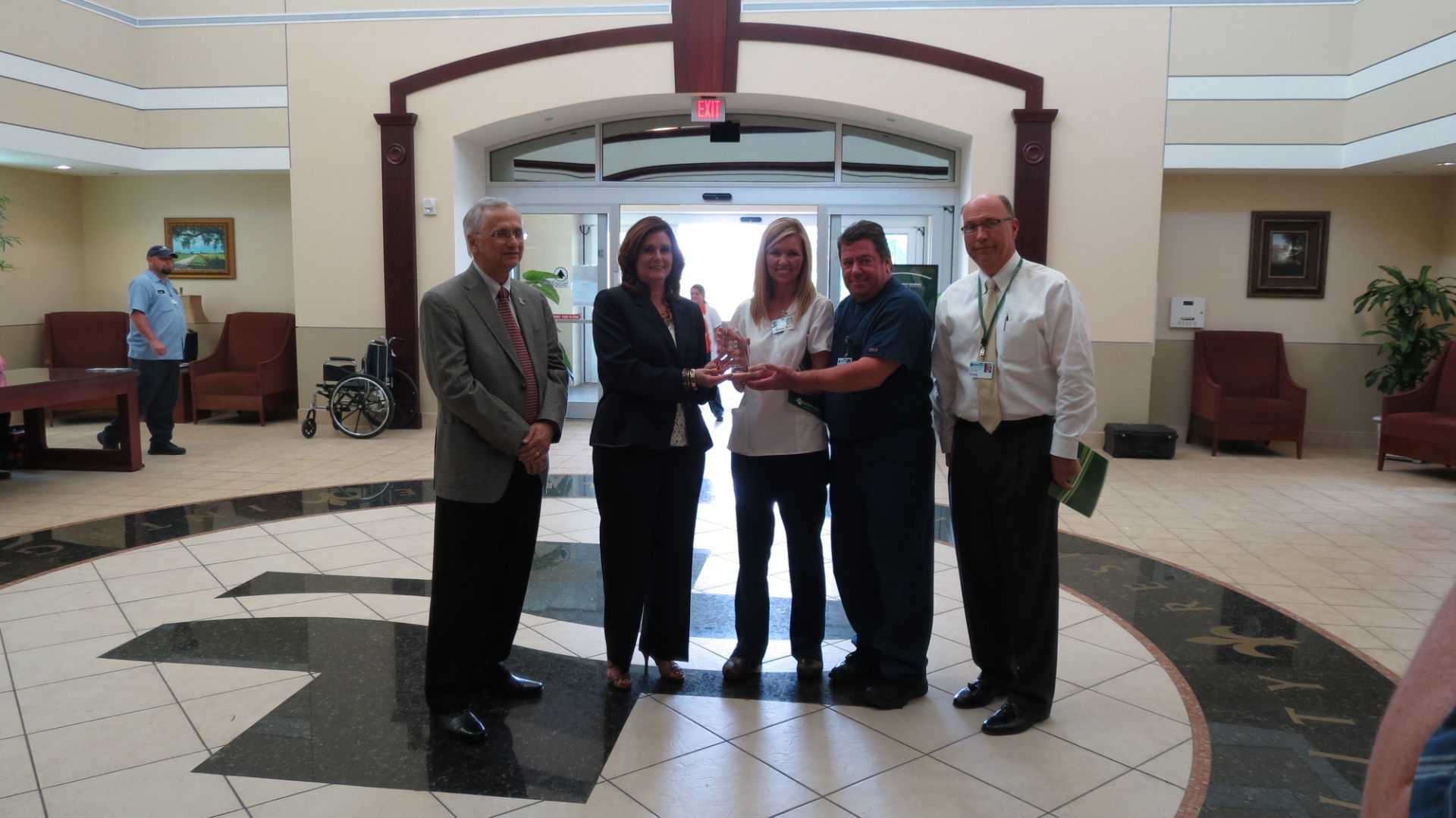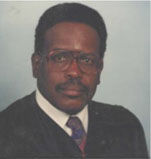
Thibodaux Regional receives 2 patient safety awards
September 16, 2014
Louisiana judge rules one same-sec marriage legal
September 25, 2014An unprecedented outbreak of Ebola in African nations; a death in Lafourche Parish related to West Nile virus; what was a rare respiratory virus affecting children is not so rare anymore, showing up in 27 states including Louisiana and the appearance of Chickengunya in the US can make for anxiety and fear in local households, regardless of the real local danger potential.
Anxious parents are asking pediatricians more questions about Enterovirus D68 in some communities, according to officials in the Ochsner Healthcare System, whose services include pediatric offices, although that doesn’t appear to be the case in the bayou region. Like parents not wanting kids to learn about sex from the streets, healthcare providers would prefer that they be the place where people bring their public health questions.
FREIGHTER FOMENTS FEAR
Complicating matters are responses to those stories on social networking sites, rarely constructive and often devoid of fact. An already swirling rumor mill sped up last week, when a freighter ship from an African port discharged a confirmed malaria case for transport to a New Orleans area hospital.
Locally and in the nation as a whole, health care providers see no public health crisis looming, though there is potential for unwarranted fear.
To paraphrase President Franklin Roosevelt, one of the chief things to fear in public health matters is fear itself.
The fear and panic that can result from misinformation, some health providers say, is in itself contagious.
“Archetypal feelings of annihilation,” is how LCSW and counselor Chris Barrileaux, who practices in New Orleans and Thibodaux describes the panic some might experience while digesting the news reports. “Irrational, primordial fear pulls us out of our rational mind and away from our ability to use logic supported by evidence.”
Irrational responses might include a local social networking post suggesting, in response to the freighter incident, that President Barak Obama is determined to have Ebola come to the United States.
UNSUPPORTED CLAIMS
In response to the outbreaks of Enterovirus D68 some Internet posters claim “illegal aliens” as the source.
Neither claim contains supporting evidence.
Taking a deep breath and seeking out the facts, Barrileaux said, can go a long way toward avoiding panic or being overwhelmed, and increase the potential for acquiring useful facts that can help people avoid health threats.
In the case of Enterovirus, for example, a useful fact for parents and other people to have is that the disease, which causes respiratory distress and sometimes hospitalization, but is rarely fatal, is not best fought by the use of hand sanitizers.
SOAP AND WATER
The Louisiana Department of Health and Hospitals, in a memo to doctors and patients, notes that enteroviruses “are small viruses without envelopes and therefore are more resistant in the environment than larger viruses with envelopes or bacteria.”
Vigorous hand-washing with soap and water is therefore preferred.
The facts according to the US Centers for Disease Control and Prevention are that from mid-August to September 22, a total of 175 people from 27 states were confirmed to have respiratory illness caused by EV-D68.
“The 27 states are Alabama, Arkansas, California, Colorado, Connecticut, District of Columbia, Georgia, Illinois, Indiana, Iowa, Kansas, Kentucky, Louisiana, Michigan, Minnesota, Mississippi, Missouri, Montana, Nebraska, New Jersey, New York, North Dakota, Oklahoma, Pennsylvania, Virginia, Washington, and West Virginia,” the latest CDC report reads “The cases of EV-D68 infection were confirmed by the CDC or state public health laboratories that notified CDC.”
FURTHER SPREAD
The infection is expected to spread further, the CDC maintains.
“The primary reason for increases in cases is that several states are investigating clusters of people with severe respiratory illness, and specimens are still being tested for EV-D68. It can take a while to test specimens and obtain lab results. That’s because the testing is complex and slower, and can only be done by CDC and a small number of state public health laboratories,” the CDC report states. . “As the backlog of specimens is processed, the number of states and confirmed cases will likely increase. These increases will not necessarily reflect changes in real time, or mean that the situation is getting worse.”
MANAGING MALARIA
EVD68 has been present in the US since at least 1961, the CDC reports. Improvements in testing and more widespread testing for causes of illnesses could be a factor in the high number of cases being reported.
The freighter situation involved a ship which had been docked in a portion of Africa where Ebola is being fought.
When the ship reached the New Orleans area the CDC and the Louisiana Department of Health and Hospitals were notified, and three of the ship’s crew members were taken to West Jefferson Medical Center, where they were diagnosed with malaria.
Another patient, who disembarked in the Bahamas prior to the New Orleans arrival, subsequently died.
“No crew members had known exposures to Ebola,” the CDC reported.
The ship’s ports of call had included Matadi, in the Democratic Republic of the Congo, which is what raised concerns about Ebola exposure.
EBOLA NOT AIRBORNE
Families of some rig workers have expressed concerns about their assignments in African nations, like Nigeria, and anxiety is increasing due to the White House decision to send US troops to West Africa to aid with humanitarian efforts.
Louisiana’s top infection control specialist, Dr. Raoult Ratard, is among nationally recognized experts who do not see a great potential of Ebola spreading to the US. If it enters the country he is confident it can be quickly isolated and contained.
In Louisiana and elsewhere in the US, Ratard said, extensive safeguards are in place.
West Africa does not have the same healthcare infrastructure as the US, Ratard said, and therefore the sick are not likely to go to hospitals.
“In the US if people get sick, they immediately would go to the hospital,” Ratard said, noting the debilitating aspects of the disease. “Nurses, lab technicians look for infections in the hospitals routinely. They are also trained to look for other infections that may be brought in. We have contacted all of the hospitals, they have a checklist of what they need to do if they suspect a case of Ebola. We would also alert the CDC and immediately do a contact investigation.”
Healthcare teams, Ratard said, would extensively question people with symptoms to determine who they had close contact with.
“We would ask ‘where were you at 9 o’clock, where were you at 10 o’clock,’” Ratard said. Ebola at this time is not airborne, and while some pundits and medical talking heads have suggested it could mutate, Ratard said there is little likelihood.
HIV, Hepatitis C and other viruses require blood or other bodily fluid contact for transmission.
“They have never been airborne,” Ratard said. “Ebola is a disease we have known about since the 1960s and we are in 2014. There is no example of blood or bodily fluid transmission switching to airborne. Bird flu can be transmitted from bird to bird and sometimes by secretions, but so far it is only the flu that would have to switch from airborne animals to airborne human transmission. Mummies from the Egyptians thousands of years old have had syphilis. They did not get it by coughing. They got it from something closer than that.”
West Nile virus, although reason for concern in Louisiana, is not a major health menace, Ratard noted, although precautions should be taken regarding mosquito exposure.
Chickengunya which has made appearances in the US, is spread much like West Nile but is rarely fatal. No native cases hae been logged by US health officials.
Another potential viral threat for some parts of the US – mainly those with climates more tropical than Louisiana – is Dengue Fever.
The mosquitoes that transmit it are active in the daytime, however, unlike Louisiana’s mosquitoes.
West Nile, Ratard said, can be active in a mosquito within a day or two after transmission to it.
But Dengue requires a longer incubation period, during which many mosquitoes would die before having the ability to transmit.
“For Dengue the mosquito must stay alive for seven days,” Ratard said. “If you are a mosquito life is dangerous. There are spiders, spiders and all kinds of insects that want to eat you alive, people that spray or use a flyswatter to get rid of you.”












